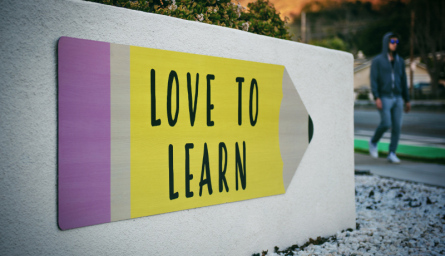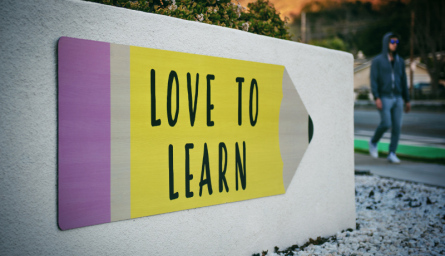Currently one of my children wants to be a contortionist, the eldest a computer game-coder and the youngest, at seven, has no idea.
It is hard enough to make those life-changing decisions as a teenager – choices which can shape the rest of our working lives.
As an eighteen year old, I chose to study maths (because I liked it) at university before falling into computer programming for several years. Then, at thirty-two, I retrained into my current career of teaching, firstly in primary school and now teaching maths to adults at a college in South East London.
Many of my students are also on their own route to a new career, however, from my experience, adult education is about so much more than just people changing their minds.
It’s about those people who fell into the wrong crowd, took the wrong path or, with the ignorance of youth, thought qualifications weren’t important.
It’s about those who suffered bullying or mental ill-health which caused them to miss out on their education.
Or those students who have dyslexia or dyscalculia (perhaps formerly undiagnosed) so struggled in school and have low confidence.
Not forgetting those who grew up in another country, moved here and want to work but need British qualifications.
Fundamentally, it is about all these people and many more, with a uniting factor of wanting to improve the lives of themselves and their families.
Studying as an adult comes with its own set of challenges. I am in awe of those students who come to class the morning after working a night shift because they appreciate the value and importance of the course they are studying. Or those who are still at college at 9:15pm on a Thursday evening after putting in a full day’s work. More often than not, adult learners have to balance family, work and still find time to study.
For many, this second learning journey is life-changing. It can lead to a university course, open doors to a better job, develop skills needed to help their children and boost confidence and well-being.
Yet despite this, we see the number of adult learners is actually decreasing. According to the recent inquiry by the Education select committee (https://publications.parliament.uk/pa/cm5801/cmselect/cmeduc/278/27802.htm), participation is down by 10 percent since 2010— that’s nearly four million fewer adult learners.
So why this decline?
Is it lack of awareness of what adult education really is and how it can help? It’s not just flower-arranging and pottery classes.
Is it a fear of not being able to do it? Maths anxiety is absolutely a thing.
Is it the cost?
I’d argue it’s a combination of all these things.
At present, the government provides funding for maths courses up to Level 2 (GCSE). The welcome introduction of the National Skills Fund next year will mean that, in addition, some Level 3 courses will be funded for adults from next April. I was delighted to see maths and statistics included in this list as this is a very positive step in the right direction.
But this funding is only available to adults who haven’t already achieved a level 3 qualification in any subject. This is likely to be restrictive for those losing jobs due to the pandemic who need new skills to change career. Adult education will be more important than ever in the current economic climate.
As a maths teacher I deliver maths at a range of levels: Functional Skills, GCSE and more recently Core Maths – a brilliant, relatively new Level 3 course which covers financial maths, statistics, spreadsheets and critical analysis. All skills, which in the current climate, would only help improve job prospects and meet the needs of the economy.
So what do I want to be when I grow up?
I want to be doing what I am right now. Helping people get the skills and confidence they need to get into fulfilling and productive careers.
But I also want play my part in ensuring adult education has a more positive, prominent image and is offered widely without barriers or restrictions. Education should be available at all stages of life not just for a narrow window.


